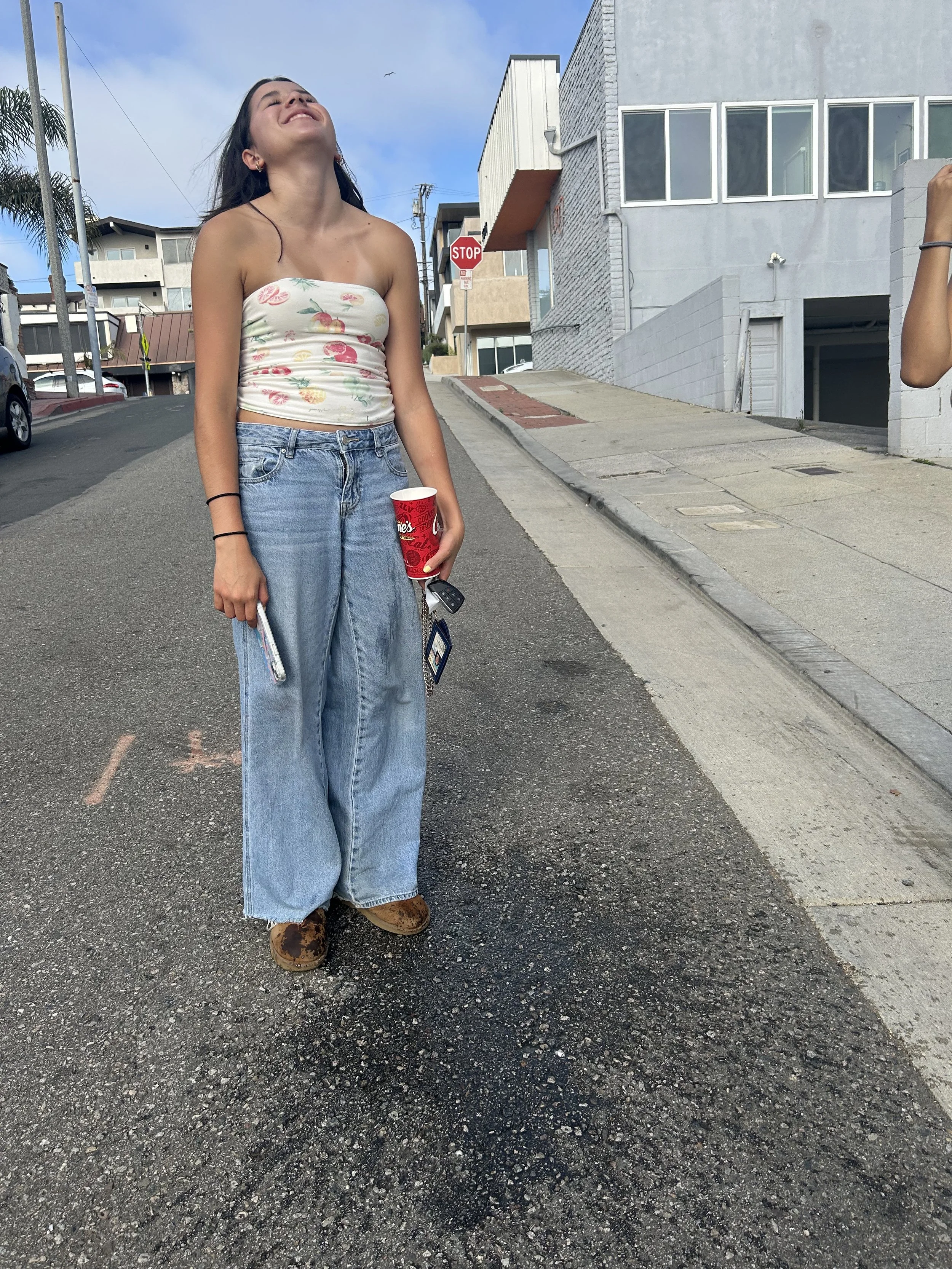sorry :(
song of the week: “Nice to Each Other” by Olivia Dean
When we’re little, one of the sooner things we learn to do is apologize. We learn to say we’re sorry before we even learn what it is that we’re apologizing for. We learn to apologize for accidentally hitting someone in the face with our tiny little hands, for grabbing things we’re not supposed to, for spilling things and for being too loud, all things that are totally normal for a baby. We apologize for being, for existing (I find that this still happens in our later lives as well, but more on that later).
It probably wasn’t until the summer after sophomore year of high school that I truly understood the full meaning of an apology. That school year I had been cyber-bullied, and when the girl’s parents found out they asked to apologize to me and my parents in-person. While initially scared and nervous, I agreed because I thought that maybe their remorse would give me some closure from everything I experienced because of this girl’s actions. When I looked across the table at her, and she delivered her apology, I saw no remorse behind her eyes. Thankfully our vice principal had called her out. She mentioned that there were three important parts of an apology that must be said in order for that apology to mean something. “The first being that you acknowledge your actions or wrongdoings, the second that you actively say that you’re sorry or regret your actions because of how they affected the other person, and the final, most important part is that you ask how or what you can do to make it up to the other person and resolve the issue.”
Hearing her put an apology in this format made me reevaluate an apology as I knew it. I started to wonder, “Why do we even apologize?” The Oxford Dictionary defines an apology as “a regretful acknowledgment of an offense or failure”. While this is true, and it fulfills the first two parts of my vice principal’s definition of an apology, I often find, from my own experience, that hearing someone declare their remorse is not enough. An apology should not come from guilt or obligation. It shouldn’t just come for politeness or embarrassment. This is why I find the third part of an apology the most important, because it’s where you can show others you really care. If an apology is an ask of forgiveness, then should we just forgive others simply because they told us they feel bad for what they did?
I think that others who truly feel remorse for what their actions will do whatever it takes to resolve their actions and make ammends. Saying sorry just isn’t enough. Sometimes it makes the other person wonder “Do they even mean it?” Take my ex-situationship for example, who said I’m sorry too many times to count while we were ending things, but starting dating somebody new six days later (fuck that guy am I right??) It’s not apologizing that means the most. Poeple can say whatever they want and not mean it. It’s asking “what can I do to make it better” or helping that lady you bumped into pick up her groceries to show that your apology means something. To show that you really care.
Another thing that I’ve noticed more recently with having to do with apologies it how much we use them. I’ve observed that many of my friends, and even my own younger sister are constantly apologizing for small actions. For being too loud, for expressing their opinions, for not responding to text messages fast enough, and numerous other things that were so insignificant I can’t even remember. I think that as women, we are raised with an idea that we are supposed to be people pleasers, and make everyone happy, because women are typically the homemakers and caretakers. I know it isn’t the 1950s anymore but this idea is still rooted in our societies. Many of us think that we always need to be perfect and we carry around too many insecurities because of it, leading us to apologize for ourselves far more than we need to.
Apologizing for ourselves too much negatively affects us in two very impactful ways. The first and most important is that constantly apologizing for ourselves just reimposes the idea that we need to, and reasserts our own insecurities when really, we are apologizing for being human, for existing. Nobody is perfect. We are allowed to be ourselves and we are allowed to take up space. We don’t have to make ourselves smaller by constantly apologizing, because when we do apologize for ourselves all the time it diminishes us. It diminishes our worth, our actions, our minds and our capabilities within a second, which is usually not our intention. Now, whenever I hear my friends or other women around me apologizing too much I always tell them there is absolutely no need to apologize, unless, of course, they actually did something wrong!
Secondly, apologizing too much starts to dilute the meaning of a true apology. If we are constantly apologizing for many different things how are poeple supposed to know which ones are real, or which ones mean the most? It might be helpful to change our language sometimes. Maybe we say “excuse me” or “my fault” more often instead of “I’m sorry or “I apologize”. Maybe we pay more attention to ourselves, and how much we do apologize. Maybe we focus on apologizing to ourselves a little, for messing up, for making mistakes, and for diminishing our own worth. My biggest piece of advice though, is that if someone like me tells you you don’t have to apologize, maybe don’t apologize for apologizing. A “thank you” or “you know, you’re right” will do just fine.
xo,
gaby!
